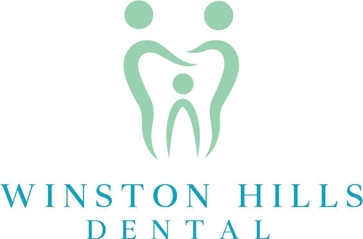Dental emergency situations are not pleasant experiences, but they are sometimes necessary. It is important to recognize the signs that indicate an emergency and take the appropriate action. By understanding the signs of a dental emergency, individuals can be better prepared to handle the situation and reduce the pain.
This article will provide an overview of the signs of a dental emergency, what to do in an emergency, tips for reducing pain, when to contact a dentist, and how to prepare for a dental emergency. Additionally, it will discuss the prevention and treatment of tooth injuries.
By being aware of the signs and steps to take, individuals can be better equipped to handle a dental emergency.
Signs of a Dental Emergency
One of the most common signs of a dental emergency is a severe and prolonged toothache. Recognizing other signs of a dental emergency, such as facial swelling, tooth loss, or gum discolouration, is important. If you experience any of these symptoms, it is important to seek emergency treatment from a dentist or dental care provider as soon as possible.
Other signs of a dental issue may include sensitivity to hot or cold temperatures, severe eating pain, or a cracked or chipped tooth. If you experience any of these symptoms, making an emergency appointment with a dentist or a dental care provider is recommended.
Seeking timely emergency dental treatments is essential to prevent further damage or complications. To provide the best care for dental emergencies, it is important to be aware of the signs and seek help from an emergency dentist immediately.
What to Do in a Dental Emergency
In times of a dental emergency, swift action is essential to preserve the health of teeth and gums – like a ship navigating a stormy sea. Any signs of dental pain, trauma, or infection should be addressed immediately by visiting a dental clinic or seeking emergency dental care.
Counter-pain medications can help ease discomfort, while a baby tooth that has been knocked out should be stored in milk until a dental professional can examine it.
Dental clinics and services provide the necessary care and attention to treat the problem and ensure the patient’s teeth and gums stay healthy. Taking prompt action is the best way to address any dental emergency and can help to prevent further damage or complications.
Tips for Reducing Pain
Feeling pain in your teeth or gums can be a frightening experience, but taking proactive steps to reduce the discomfort can help alleviate the worry. To reduce pain, consider taking the following steps:
- Applying a cold compress to the outside of the mouth helps reduce swelling and ease discomfort associated with a severe toothache, a knocked-out tooth, or a broken tooth.
- Rinsing the mouth with warm water and gently brushing the affected area may help reduce pain from an adult tooth, a tooth abscess, or uncontrolled bleeding.
- Taking over-the-counter pain relievers or seeking root canal treatment, depending on the severity of the dental emergency.
These proactive steps can help reduce the pain associated with a dental emergency and provide relief.
When to Contact a Dentist
Identifying when to contact a dentist is essential for managing a dental emergency. Any extreme tooth pain, bacterial infections, or severe bleeding should prompt an individual to contact an experienced dentist as soon as possible.
A dental appointment should be made without delay if a tooth is loose, fractured, broken, or knocked out. In addition, an individual should contact a dentist if a root canal is necessary or if oral health is at risk.
Individuals can ensure their teeth and gums remain in good condition by taking prompt action. Experienced dentists understand how to treat dental emergencies, and their expertise can help individuals maintain their oral health.
How to Prepare for a Dental Emergency
Preparing for a dental emergency can be the difference between a successful recovery and a prolonged ordeal. Knowing the signs of a dental emergency, such as tooth abscesses, soft tissue injuries, and dental injuries, can help you identify when to seek emergency dentistry services and go to a hospital emergency room.
It is important to be aware of the signs of a gum injury and to have an emergency dental appointment scheduled beforehand to prepare for a dental emergency. A pre-planned emergency dental appointment can help you access the necessary emergency dentistry services quickly and efficiently.
Having an emergency kit with basic supplies can also help you be prepared for a dental emergency. Being prepared for a dental emergency includes being aware of the signs and having an emergency kit and appointment ready for a successful recovery.
Prevention and Treatment of Tooth Injuries
Preventing and treating tooth injuries can be critical to ensuring a successful recovery. Regular checkups and cleanings at your dentist can help prevent tooth decay and tooth extraction. Identifying wisdom teeth early can also help prevent traumatic injuries.
If you experience a dental emergency, an emergency exam should be done to assess the extent of the injury and develop a treatment plan. The tooth root may need to be repaired, or a dental restoration may be necessary. To prevent widespread infection, it is important to seek dental emergency care as soon as possible. If neglected, the tooth may require extraction.
Regular checkups and cleanings are important to reduce the risk of tooth injuries. Additionally, following your dentist’s instructions on how to care for your teeth can help keep them healthy and strong.
Key Takeaways
Dental emergencies can be serious and require immediate attention. It is important to be aware of the signs of a dental emergency and how to respond. Understanding the best way to prepare for a dental emergency can help reduce tooth injury risk and improve dental health.
According to the Australian Dental Association, approximately four million teeth are knocked out each year in Australia, and approximately one-third of these teeth can be saved if they are handled and stored properly. Knowing the signs of a dental emergency and how to respond and prepare appropriately can help ensure that teeth remain healthy and strong.
If you experience a dental emergency, don’t hesitate to visit Winston Hills Dental in Winston Hills, NSW. Our experienced dental professionals can provide fast and effective treatment for any dental emergency. Taking preventive measures and seeking professional treatment when necessary can ensure your oral health and minimise the risk of more serious health complications.

